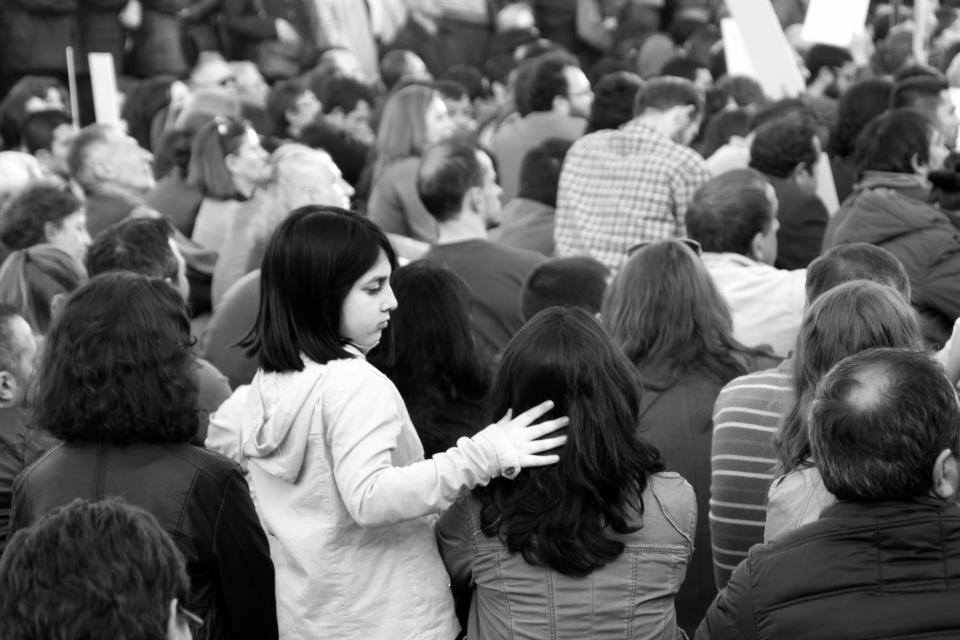
In her commentary, Begum Zorlu, PhD researcher at City, University of London, argues that by denying Kurdish politician Aysel Tuğluk proper treatment for her dementia, authorities are putting her life at risk.

All persons under any form of detention or imprisonment shall be treated in a humane manner and with respect for the inherent dignity of the human person.
Basic Principles for the Treatment of Prisoners, Article 1; UN Body of Principles for the Protection of All Persons under Any Form of Detention or Imprisonment
Followers of Turkish politics are aware that since the coup attempt in 2016, democratic backsliding in the country has taken the form of unjust trials, rights violations, and political violence. The deterioration of rights has also been evident in cases of detention, which are clearly in violation of the basic principles for the treatment of prisoners highlighted in international treaties. Kurdish politician Aysel Tuğluk’s continued captivity to this day demonstrates the cruelness of the current political climate in Turkey and marks a grave human rights violation.
Aysel Tuğluk is a prominent Kurdish politician and a human rights lawyer who has been active in national politics for almost twenty years. She was the founding member and Co-Chair of the pro-Kurdish Democratic Society Party.
Her life has been marked by struggle on multiple fronts as she explained in one of her interviews that the death of her father and brother during her childhood shaped her desire to enter politics. She was raised by a diligent mother, who tried to make ends meet to keep Tuğluk in education. Tuğluk described the losses she faced during her childhood as motivating her to enter politics.
Aysel Tuğluk faced repression throughout her career and has been imprisoned since 2016 due to the charges on terrorism linked to the outlawed Kurdistan Workers’ Party (PKK). However, as the solidarity group “1000 Women for Freedom to Aysel Tuğluk” has outlined, these charges are linked to the speeches she made as a deputy, which are within the scope of freedom of thought and expression.
While serving her sentence Tuğluk’s mother Hatun Tuğluk passed away in 2017, and the funeral was attacked by far-right protestors in Ankara. A large group attacked with stones and sticks and threatened to prevent the funeral. Due to this, Tuğluk’s family decided to move Hatun Tuğluk’s body from the cemetery where she was buried so that it would not be attacked. The crowd also shouted racist and discriminatory slogans like “we will not bury terrorists here. This is not an Armenian cemetery. If you bury them, we will cut them to pieces!” This undoubtably became a traumatising event as Aysel Tuğluk’s farewell to her mother was marked by attacks and threats. Due to the continued threats and impunity, Tuğluk’s mother’s body had to be transferred to Dersim. She was not able to attend the funeral as a permit was not given by the authorities. Tuğluk’s family and friends believe that the attacks have triggered or contributed to her illness. She was diagnosed with dementia in prison last year.
The situation is getting worse and urgent action needs to be taken
Even though her illness is progressing, Tuğluk is repeatedly facing obstacles to receiving the right treatment. After a long-term legal struggle, which recently concluded, the courts decided for her release. However, it was announced that Tuğluk will have to continue to stay in prison, due to receiving a sentence as part of another case.
The situation is dire. As a result of the treatment and examinations carried out by Kocaeli University Forensic Medicine Department months ago, it was stated that Aysel Tuğluk could not stay in prison. Her lawyer Ezgi Güngördü, stated that Tuğluk did not even remember the release decision given in the Kobanê case . Despite multiple medical and expert reports stating that “Tuğluk cannot stay in prison alone”, the official Institution of Forensic Medicine says she can stay imprisoned. However, the same Institution of Forensic Medicine made a decision to release the General Çevik Bir, who is also facing the same illness.
Solidarity Continues to Grow
Rights activists in Turkey and around the world have been working to raise awareness of her case and secure her release. In January, an application was made to the UN for the release of Tuğluk and other sick prisoners. Bar associations and non-governmental organizations wrote a letter to the UN to take action on the state of sick prisoners. This letter, signed by bar associations, law and human rights organizations from countries around the world was sent to the UN Special Rapporteur on Torture and Ill-Treatment, Independence of Judges and Lawyers, The Condition of Human Rights Defenders, Physical and Mental Health, and Minority Rights, and the Arbitrary Arrests Working Group.
Her captivity led to domestic and international reactions. The Republican Peoples’ Party (CHP) Adana Provincial Organization Chair Mehmet Çelebi has made a call for Aysel Tuğluk’s release from prison. Feminist activists and authors like Silvia Federici and Angela Davis also sent calls of solidarity.
Free Aysel Tuğluk Now
After the announcement that Tuğluk will not be released, the “Platform of 1000 Women for Aysel Tuğluk” gathered in front of the prison. Speaking at the gathering, Prof. Dr. Özgün said “Unfortunately, Aysel Tuğluk no longer has the opportunity to meet her needs and maintain her personal care without assistance.
Tuğluk’s continued captivity is making her illness worse, leading to an irreversible point with each passing day. As Kurdish politician Ahmet Turk put it earlier, “The government is approaching this issue with hostility. It is inhumane to keep a person in such a state of health in prison.” It is therefore correct to state that every day that Tuğluk is being held amounts to the continuation of a human rights violation. She must be released immediately.


